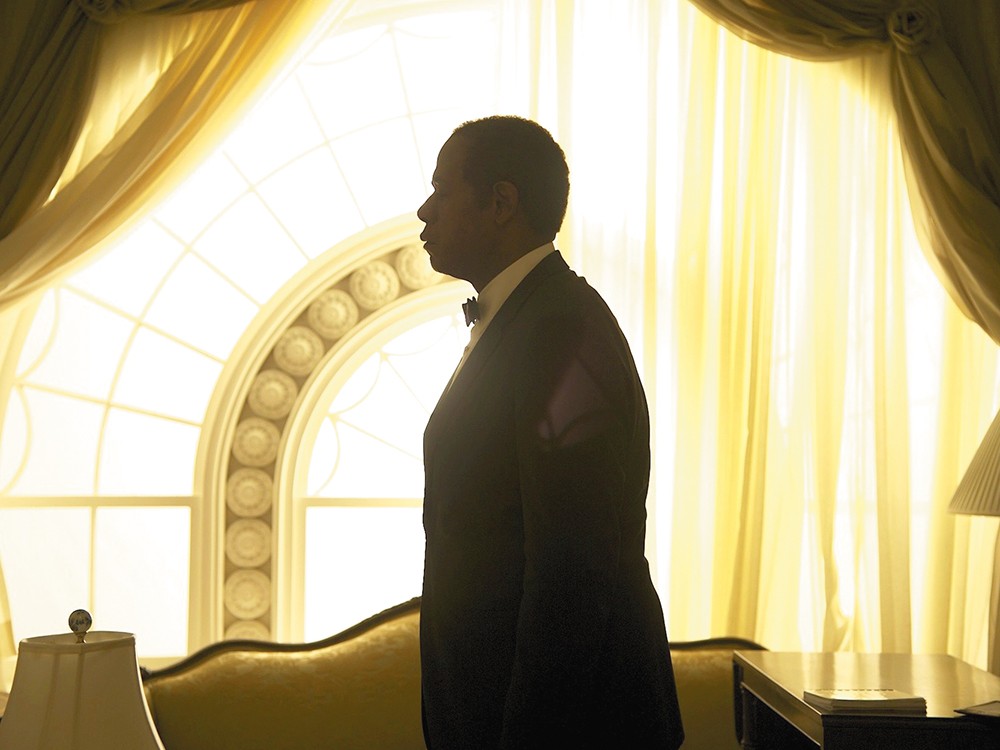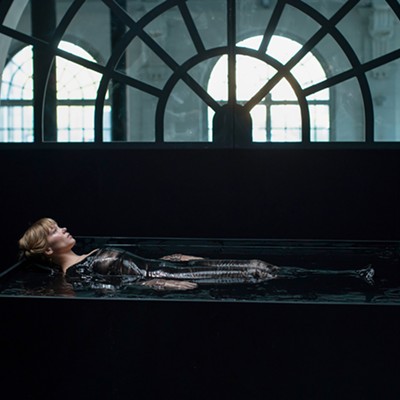Thanks to a lawsuit challenging The Weinstein Company’s right to use the title The Butler — one that, depending on your sympathies, is either “protecting intellectual property” or “typical petty Hollywood dick-swinging” — the full, official title is now Lee Daniels’ The Butler. And even if the director’s name is unfamiliar to you, you may realize by the end why auteur credit is so appropriate for this movie.
Lee Daniels, you see, is not a subtle filmmaker. Best known for the Oscar-winning misery-wallow Precious: Based on the Novel ‘Push’ by Sapphire, Daniels also oversaw last year’s swampy, fairly demented adaptation of Pete Dexter’s The Paperboy, which became most infamous for a tender moment in which Nicole Kidman saves Zac Efron’s life from jellyfish stings by peeing all over his face. Call it a special gift for picking source material, but Daniels has seemed to understand where his distinctive brand of visual too-much might actually be just right.
He’s at it again with this loose adaptation of the life story of former White House butler Eugene Allen, turned here into a fellow named Cecil Gaines. Born on a Georgia plantation in 1918, Cecil witnesses the sexual abuse of his mother and the murder of his father at the hands of the plantation’s white owner, before eventually learning how to be an effective house servant — that “the room should feel empty when you’re in it.” His ability to avoid conflicts and please people catches the eye of a White House staff recruiter, who brings Cecil on during the Eisenhower administration, beginning service that would take him into the Reagan years.
Daniels and screenwriter Danny Strong — who handled political history in the HBO films Recount and Game Change — focus largely on the dynamics within the Gaines family, yielding an odd mixed bag of results. The conflict between Cecil and his oldest son, Louis (David Oyelowo) — who becomes first a Martin Luther King, Jr.-following nonviolent protester, and eventually a Black Panther — becomes a filter for the entirety of the civil rights-era philosophical battle between assimilation and agitation; the battles with alcoholism of Cecil’s wife, Gloria (Oprah Winfrey), serve as little more than melodramatic fodder for “you care more about your job than you care about us” material.
Yet there’s also an unavoidable collision between this story’s sense of self-importance and Daniels’ oddball choices. It’s frustrating enough at times to find the narrative zipping through and name-checking crucial historical moments — it sometimes feels like Forest Whitaker Gump — just because there’s so much ground to cover. But then there are the stunt casting choices for the various presidents with whom Cecil interacts, ranging from the perfectly satisfactory (James Marsden as John F. Kennedy) to the thoroughly distracting (John Cusack as Nixon; Robin Williams as Eisenhower).
And there’s the cross-cutting between Cecil’s white-glove service and Louis being abused during a lunch counter sit-in, which runs far beyond the point where the juxtaposing point is made. It’s a sprawling, messy, sporadically effective treatment of a difficult subject by a director who lives and breathes in a sprawling, messy, sporadically effective creative place.
If there’s any way Lee Daniels’ The Butler is likely to divide viewers, however, it’s in the way the narrative builds to Barack Obama’s election in 2008. Within the context of the film, it becomes the grand culmination of the entire civil rights movement — which is bound to drive some people absolutely crazy, even as Daniels and Strong convey how powerful this moment could be to black Americans born during the era of Jim Crow, to veterans of marches and unfair jailings, to so many who dreamed but perhaps never truly believed America could reach that point during their lifetime. Perhaps if Daniels had stayed focused on this emotional arc of history, rather than funky distractions and over-the-top visual moments, he could have nailed this story. But then again, if that were true, it wouldn’t be Lee Daniels’ The Butler.

















